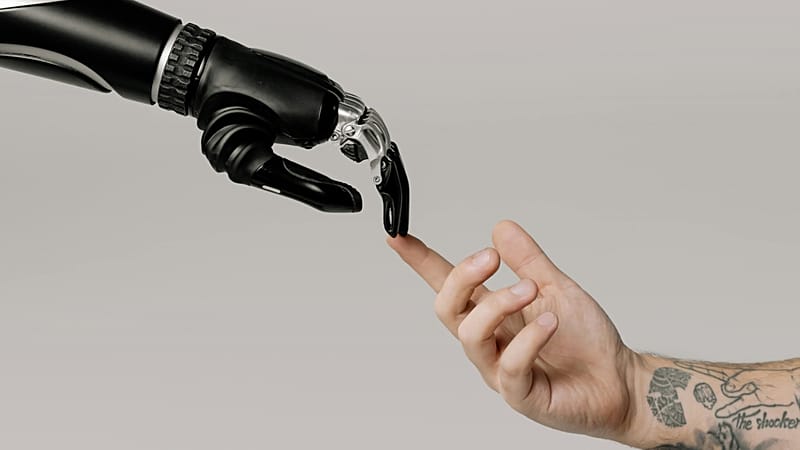What will AI never be able to do and what can it do? Tech executives in Spain weigh in

Artificial intelligence (AI) is no longer a futuristic utopia that we see from afar, it is a reality that transforms everything from energy to distribution and start-ups. This is what three experts defended at the residence of the French ambassador in Madrid on the occasion of the French Innovation Night, a night dedicated to innovation and connection between companies organised by Business France and the French Embassy in Spain.
Three experts in the field spoke about the AI trend and how it is shaping our present and future. Elena González-Blanco García, Head of AI for EMEA Digital Natives at Microsoft; Javier Mallo, chief information officer at Carrefour Spain; and Rafael San Juan, head of innovation at Iberdrola.
González-Blanco, one of the most experienced voices in the sector, underlined the "dizzying" speed at which the field is evolving: "Even for those who develop the models, it is impossible to keep up with everything that is happening". Therefore, she explains that the key is to accompany companies in this accelerated adoption and to bring AI "down from the lab to real life".
According to a McKinsey study from 2024, some 78 per cent of companies already use artificial intelligence in some part of their business, but for the head of AI at Microsoft, "that figure is an understatement": "We are at the point of real adoption. Anyone who is not already at this point is late".
One of the most hotly debated points, and one that presents real challenges for businesses and user trust, is how companies handle personal data and how AI changes the way they use it. Some 40 per cent of Spaniards do not believe that companies adequately protect their information, according to data from the Ipsos AI Monitor 2025 study.
Mallo, chief technology officer at Carrefour, offered a dual perspective: "As a citizen, I am aware of the risk, but if we don't share our data, we are left behind. And as a professional, I guarantee that we invest huge resources in cybersecurity, although no one can promise 100 per cent protection". He argued that companies are increasingly investing in cybersecurity to protect user data.
González-Blanco agreed that fear is overblown. "We have been sharing information on social networks for decades. The important thing is not to be afraid, but to understand the technology and use it judiciously". Rafael San Juan of Iberdrola added that cybersecurity "will always be a race in which criminals are one step ahead," but that regulation and ethics "are advancing to balance the system".
Any technological revolution brings with it the risk of groups using it to commit crime, so the future of AI presents challenges for businesses and authorities, as criminals also evolve and adapt.
Spain and the EU a lost race against the US and China
All experts agreed that Spain and the EU are underinvesting in AI, which weakens their competitive position against giants such as the US and China. "It's not just a question of money, but of believing in it and losing the fear of failure," said González-Blanco.
Iberdrola's San Juan pointed out that "this is not just about Spain, but a European trend", while Mallo highlighted the lack of ambition to compete with powers such as the United States and China.
Only 1 per cent of the companies surveyed in a McKinsey 2025 study confirm that they have integrated artificial intelligence to a high level in their workflows. This percentage hints at the potential that is being lost by not consciously using AI to increase productivity and remove mechanical tasks.
The Microsoft representative gave the example of Mistral, the French unicorn that develops generative AI models and shows that"Europe can also play in the premier league if it is serious about talent and innovation".
Jobs and the future: Will AI really kill jobs?
In response to fears that artificial intelligence will replace skilled workers, the three experts were blunt: AI is not here to replace, but to enhance. The value provided by a human will always be needed. It should not be forgotten that AI hallucinates (errors in its reasoning), and that is where human judgment must come into play to control the machine.
"We have been hearing for half a century that machines will replace humans, and it hasn't happened," González-Blanco recalled, citing an interview in the 1970s with the founder of MIT's first AI lab, Marvin Minsky, who at the time said that AI would change the way we work and replace humans in about ten years. "Technology changes the way we work, but it does not eliminate human value," she said.
San Juan, for his part, defended that knowledge and experience will continue to be "irreplaceable", while Mallo pointed out that the future will be in the collaboration between people and machines: "The companies that combine artificial and emotional intelligence will be the ones that lead".
Although the development of advanced models seems to be reserved for technological giants, the speakers rejected the idea that small and medium-sized companies are out of the game. "Applied AI allows us to compete on the basis of specialisation," explained González-Blanco. "It is not about manufacturing technology, but about using it well. Local and sectoral knowledge can be a decisive advantage".
Mallo agreed: "Today, anyone with a good idea and the ability to execute it can break through. Market access has never been so open," he said.
What can artificial intelligence never do?
The panel concluded with a symbolic question:What will artificial intelligence never be able to do? The answers were unanimous: emote, feel, lead with empathy. " AI will be able to build the Taj Mahal, but it will never know what it means to love the person who builds it", summarised San Juan.
Because, as the three agreed, true intelligence, the one that distinguishes human beings, continues to be in emotions, creativity and intuition.

